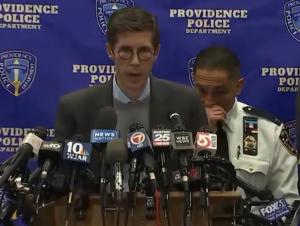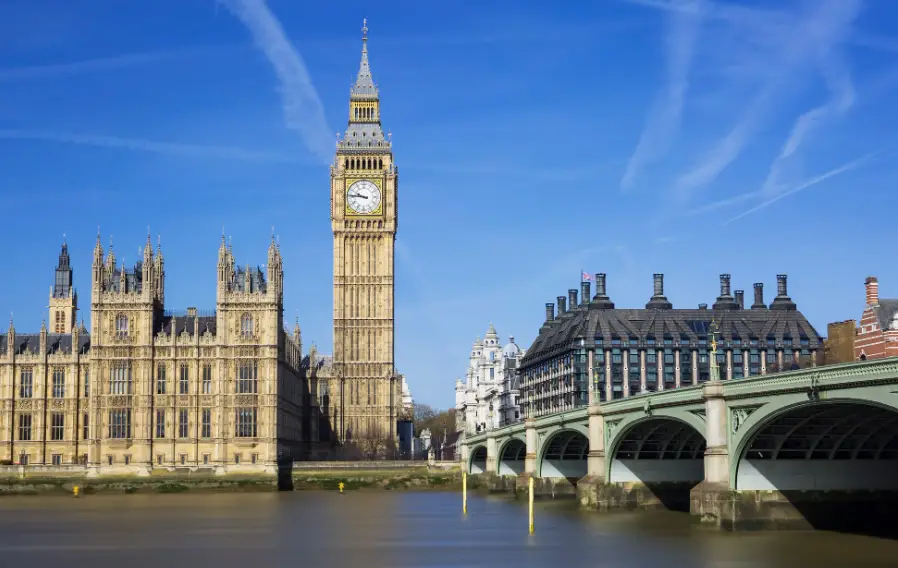Family Skipped My Wedding for London Vacation—Then They Saw Who I Married on the News
The Empty Seats
For eight years, Captain Elena Ward had worn the uniform. She’d served on three deployments, earned commendations for tactical analysis under fire, and built a reputation as the officer who stayed calm when everything was falling apart. She’d led teams through crisis situations where lives hung in the balance, made split-second decisions that would haunt lesser people, and proven herself in a field where women still had to work twice as hard for half the recognition.
But at family dinners, none of that mattered.
What mattered was that her sister Lydia had just been promoted to senior marketing director at a tech firm—a job their mother Caroline could actually explain to her book club friends. What mattered was that Elena’s father Richard could brag about Lydia’s corner office and six-figure salary without having to explain what “tactical communications officer” meant.
What mattered was that Elena had chosen camouflage over cocktail dresses, duty over appearances, and service over status. And her family had never forgiven her for it.
The cracks had been there for years, small fissures that Elena had learned to ignore the way you ignore background noise. Her mother’s tight smile when Elena showed up to dinner in uniform. Her father’s subtle corrections when she talked about her deployments, steering conversation back to Lydia’s latest marketing campaign. Her sister’s jokes about how Elena would probably marry “some sergeant with a jeep.”
But it was the engagement that finally shattered the illusion that her family would ever truly see her.
The Announcement
Elena had been nervous telling them about Mark. Not because she doubted the relationship—she’d never been more certain of anything in her life—but because she knew her family’s reaction would be lukewarm at best.
She’d been right.
“That’s wonderful, dear,” her mother had said, the words landing with all the enthusiasm of someone commenting on the weather. “When did this happen?”
“Three weeks ago. He proposed at Fort Meyer, overlooking the parade grounds where we both—”
“And what does he do?” her father interrupted, his tone suggesting he was asking about a hobby rather than a career.
“He’s in the Navy. We met through work.”
“Another military person,” Lydia had said, not quite hiding her smirk. “Well, I suppose you two will have a lot to talk about.”
The subtext was clear: How boring. How predictable. How… Elena.
Her father had shaken Mark’s hand when they’d met—a perfunctory grip that said he was doing his daughter a favor. Later that evening, Elena had caught him whispering to her mother: “She’s always been desperate to prove something. I suppose this is more of the same.”
Elena hadn’t told them much about Mark after that. They never asked about his rank, his service record, his accomplishments. They’d decided he was just another military cog—a sergeant with a jeep, probably, just like Lydia had predicted.
What Elena didn’t mention was that Lieutenant Commander Mark Hall was one of the youngest officers in his field to reach that rank. That he’d been recruited for specialized intelligence work that most officers could only dream of accessing. That his strategic assessments had influenced decisions at the highest levels of command.
She didn’t mention it because it didn’t matter to her. And she knew it wouldn’t matter to them either. They’d already decided who she was—the disappointing daughter who’d chosen duty over dinner parties.
The London Trip
The engagement ceremony was set for June 12th—a formal military event where they’d sign official paperwork, make it legally binding in front of their command structure, and celebrate with the people who actually knew them and their work.
Elena had sent her family the invitation eight weeks in advance. She’d called to make sure they’d received it. She’d marked it on the family calendar her mother maintained with religious devotion.
And then, six weeks before the ceremony, Lydia had made an announcement at Sunday dinner.
“We’ve finally booked that London trip!” she’d said, her voice bright with manufactured enthusiasm. “The one we’ve been talking about forever. Mom, Dad, and me—a proper family vacation. We leave June 10th.”
The silence that followed was deafening.
“That’s my engagement week,” Elena had said quietly.
“Is it?” Lydia had blinked with theatrical surprise. “Oh my gosh, I didn’t even realize. But we can’t change it now—the tickets are non-refundable, and I’ve already arranged time off work. You understand, right?”
Elena had looked at her mother, who suddenly found her wine glass fascinating. At her father, who cleared his throat and started talking about airline miles and hotel points. At her sister, whose smile didn’t quite reach her eyes.
“To celebrate something worthwhile,” Lydia had added, as if Elena needed clarification.
The words had hung in the air like smoke, impossible to breathe through.
“Have a good trip,” Elena had said, her voice steady despite the fist closing around her heart.
Years in the military had taught her composure. You learned to keep your face neutral when someone was yelling orders six inches from your nose. You learned to function on three hours of sleep and bad coffee. You learned that some battles weren’t worth fighting because the other side wasn’t actually interested in peace.
So she didn’t argue. She didn’t beg them to reconsider. She just went back to planning an event they’d made crystal clear they had no intention of attending.
Mark Noticed
“They’re really not coming,” Mark had said one evening as they reviewed the guest list. Not a question—a statement of fact delivered with the careful neutrality of someone reading intelligence reports.
“They’re not,” Elena had confirmed.
“Is it because they don’t approve of the military, or because they don’t approve of you?”
Elena had thought about that for a long moment. “I think they’re embarrassed that I didn’t turn out the way they wanted. I was supposed to be a lawyer or a doctor or marry someone who was. Instead, I’m a naval officer marrying another naval officer, and they don’t know how to explain that to their friends without it sounding… lesser.”
Mark had nodded slowly, like he was processing tactical data. “Their loss.”
Two words. Simple. True. But they didn’t quite cover the hollow feeling Elena carried around like a stone in her chest.
The Ceremony
The engagement ceremony was held at the base chapel, a modest but dignified space where hundreds of military couples had formalized their commitments before deployment, before reassignment, before the thousand uncertainties that came with wearing the uniform.
The room filled with Navy blue uniforms, pressed and starched, ribbons and medals catching the afternoon light. Lieutenant Commander Sarah Chin, who’d been Elena’s roommate during officer training. Petty Officer First Class Mike Rodriguez, who’d saved her life during a training accident in Guam. Commander Patricia Oay, who’d mentored her through her first deployment.
Several senior officers came too—people who’d written her performance evaluations, people who’d seen her at her best and worst and decided she was worth investing in.
Colonel James Harper, her commanding officer, arrived early and pulled her aside. “Your family couldn’t make it?”
“They had other plans.”
Harper had studied her face for a moment, then nodded. “Their loss. Hall’s a solid officer. You two are going to do good work together.”
The ceremony was modest but formal—folded flags on the tables, a toast from Colonel Harper, official paperwork signed in triplicate. When Mark slipped the ring on Elena’s finger, she felt something settle in her chest. Not happiness exactly—more like certainty.
These were her people. This was her family. The ones who showed up.
But the three empty seats in the front row marked “family of the bride” drew eyes anyway. People noticed. A few asked quietly where her family was, and Elena gave them the same answer: “They had other plans.”
No one pushed further. Military people understood loyalty. They also understood when loyalty wasn’t returned.
The Social Media Post
That night, Elena had checked her phone out of habit. Lydia’s Instagram was a masterclass in passive aggression.
A series of photos: champagne glasses clinking against a London sunset. A rooftop dinner overlooking the Thames. Lydia’s arm around their mother, both of them laughing with the kind of joy that looked suspiciously performative.
The caption read: “Some celebrations actually matter. ✈️ #FamilyFirst #LondonLife #WorthIt”
Elena had stared at those words until they blurred. Then she’d set her phone face-down on the nightstand and tried to sleep.
By morning, the post had been everywhere. Someone had tagged her. Then someone else had shared it. By noon, half her unit had seen it.
Mark had found her that evening, her phone face-up on the kitchen counter, the post still visible on the screen.
He’d looked at it for a long moment. Then at her. Then back at the screen.
“Now I understand,” he’d said finally.
“Understand what?”
“Why you never talk about them. Why you flinch every time someone mentions family leave.” He’d taken her hand gently. “They don’t see you, do they?”
Elena had wanted to argue, to defend them, to make excuses about different values and misunderstandings. But she was tired of lying—especially to him.
“No,” she’d said. “They don’t.”
Mark had been quiet for a moment, thinking in that way he did when processing complex strategic problems. “You told me you wanted the wedding to be small and private. Just us and a handful of witnesses at the base chapel. Is that still what you want?”
“Yes,” Elena had said. “I don’t need a big production.”
“Okay,” Mark had agreed. But there was something in his expression she couldn’t quite read—something that looked like determination. “Small and private. Just us.”
Elena had believed him. She should have known better.
The Wedding Day
Two months later, Elena stood in the bride’s room at the Fort Meyer Chapel, adjusting her dress uniform for the third time. It was just nerves, she told herself. The same nerves every bride felt.
But when Sarah Chin knocked and entered, her expression stopped Elena’s fidgeting cold.
“You need to see something,” Sarah said, pulling up something on her phone. “Before you walk out there.”
It was a news headline: “Navy Officer Marries Rising Star Admiral in Historic Fort Meyer Ceremony”
Elena blinked. “What?”
“Read it,” Sarah urged.
Elena took the phone, her hands suddenly numb. The article detailed Mark’s recent promotion—to rear admiral, one of the youngest officers to reach flag rank in decades. It talked about his classified intelligence work, his strategic innovations, his reputation as one of the sharpest minds in naval command.
“Mark is a… rear admiral?” Elena whispered.
“As of two weeks ago,” Sarah confirmed. “He didn’t tell you?”
“He said he had a promotion coming, but I thought…” Elena’s voice trailed off. She’d thought he meant commander. Maybe captain eventually. Not admiral. Not this.
“There’s more,” Sarah said gently. “Look who’s attending.”
Elena scrolled down. The guest list included Secretary of Defense Rhodes. Admiral Richardson, Chief of Naval Operations. Multiple senators. The Chairman of the Joint Chiefs of Staff.
Her small, private wedding had transformed into a high-level military ceremony that would be attended by some of the most powerful people in the Department of Defense.
“I’m going to kill him,” Elena said, but there was no real anger in her voice. Just shock. And something else—something that felt suspiciously like vindication.
The Ceremony That Wasn’t Small
The Fort Meyer Chapel could hold three hundred people. Elena had expected seventy-five. Instead, she walked down the aisle past row after row of dress uniforms representing every branch of military service.
The ceremony was livestreamed—standard protocol for high-ranking officer weddings. The press was there, restricted to a designated area but present nonetheless.
And at the altar stood Mark—no, Rear Admiral Mark Hall—in his dress whites with the stars of his new rank gleaming on his shoulders.
When Elena reached him, he leaned close and whispered, “I’m sorry for the surprise. But I wanted you to have the wedding you deserved—with everyone who matters actually showing up.”
“You’re an admiral,” Elena whispered back.
“I’m your husband,” Mark corrected. “The admiral thing is just my day job.”
Secretary Rhodes performed the ceremony—a rare honor that wasn’t lost on anyone present. When he pronounced them married, the applause was thunderous.
At the reception, Elena found herself shaking hands with admirals and generals, with senators and defense contractors, with people whose decisions shaped national security policy.
Colonel Harper pulled her aside at one point, his eyes twinkling. “Well played, Ward. Or should I say, Mrs. Hall?”
“I had no idea,” Elena admitted.
“I know. That’s what makes it perfect. Your family chose London over your engagement. And you ended up marrying one of the most promising flag officers in the Navy. In front of the Secretary of Defense. Being livestreamed to military families around the world.” He clinked his champagne glass against hers. “Sometimes the universe has a sense of humor.”
The Phone Call
The call came at 11 PM that night, after the reception had ended and Elena and Mark had retreated to their hotel suite.
Elena saw her mother’s name on the screen and almost didn’t answer. But curiosity—or perhaps a masochistic need to hear what they’d say—made her pick up.
“Elena?” Her mother’s voice was strange. Tight. “We saw… we saw your wedding. On the news.”
“Did you?”
“You married an admiral. A rear admiral. And the Secretary of Defense was there. Why didn’t you tell us?”
Elena looked at Mark, who was listening to her side of the conversation with studied neutrality. “You never asked who Mark was. Just that he was in the military.”
“But an admiral—that’s—that’s significant. That’s important.”
“More important than a marketing director?” Elena couldn’t help the edge in her voice.
Her mother was silent for a moment. “Your father wants to know if we can meet for dinner when you’re back from your honeymoon. To celebrate properly.”
“Celebrate what, exactly? You already made it clear my engagement wasn’t worth canceling a vacation for. What’s changed?”
“Elena, that’s not fair. We didn’t know—”
“Didn’t know what? That Mark was important enough to matter? That’s the problem, Mom. You decided I wasn’t important enough to matter. Mark’s rank doesn’t change that.”
“Your sister feels terrible about the London timing—”
“Does she?” Elena laughed without humor. “Or does she feel terrible that she missed a photo opportunity with the Secretary of Defense?”
Her mother’s voice went cold. “I don’t appreciate your tone.”
“And I didn’t appreciate ‘some celebrations actually matter’ posted while you were toasting in London during my engagement ceremony. But here we are.”
Elena hung up before her mother could respond.
Mark pulled her into his arms. “You okay?”
“Better than okay,” Elena said, and meant it. “For the first time in my life, I’m not making excuses for them.”
Six Months Later
The media attention from the wedding eventually faded, replaced by other stories, other ceremonies, other headlines. But Elena and Mark’s marriage became something of legend in naval circles—the tactical communications officer and the intelligence admiral, two careers running parallel, neither diminished by the other.
Elena was promoted to commander three months after the wedding, a rank she’d been working toward for years. When the news broke, her mother called again.
“Commander Hall! We’re so proud of you!”
“Are you?” Elena asked. “Or are you proud that it’s something you can brag about now?”
The question hung in the air like smoke.
Elena’s family sent gifts—expensive ones, carefully chosen to convey wealth and thoughtfulness. They sent cards. They sent flowers. They extended dinner invitations that always seemed to coincide with when Elena and Mark might be photographed together.
Elena declined them all.
“Don’t you think you’re being harsh?” Sarah asked one evening over drinks. “They’re trying.”
“They’re trying now that it benefits them,” Elena corrected. “Where were they when I was a lieutenant? Where were they during my deployments? Where were they when I got my first commendation?” She shook her head. “They don’t want a relationship with me. They want access to my husband’s rank and the status it brings.”
“Fair point.”
A year after the wedding, Elena stood beside Mark at the Pentagon receiving a joint commendation for excellence in strategic communications and intelligence integration. It was a rare honor, typically reserved for teams rather than married couples.
Secretary Rhodes pinned the medal on Elena’s uniform himself. “Outstanding work, Commander. You and Admiral Hall make quite a team.”
“Thank you, sir.”
“I mean that. This project could have gone sideways a dozen different ways, but you two navigated every obstacle with professionalism and precision.”
After the ceremony, a reporter approached Elena. “Commander Hall, how do you balance marriage and military life—especially when both partners have such demanding positions?”
Elena thought about all the easy answers she could give. Instead, she said, “It helps when your partner understands command. When both people understand duty and sacrifice and showing up even when it’s difficult. We’re not balancing marriage against military life. We’re integrating them.”
“And your family? How do they feel about both of you serving in such high-level positions?”
The question hung in the air. Sarah, standing nearby, tensed.
But Elena smiled—genuinely smiled—and said, “My family is very supportive. They understand the importance of this work.”
It wasn’t a lie. Her chosen family—the people in that room, the colleagues who’d shown up for her wedding, the mentors who’d invested in her career—they were supportive. Her birth family wasn’t part of that equation anymore.
The Final Boundary
Two years after the wedding, Elena’s father suffered a heart attack. Not fatal, but serious enough that her mother called, her voice shaking for the first time Elena could remember.
“Your father is asking for you. Please, Elena. He wants to see you.”
Elena drove to the hospital alone. Mark had offered to come, but she’d declined. This was something she needed to do herself.
Her father looked small in the hospital bed—a strange sight for a man who’d always seemed larger than life, at least in his own estimation. He reached for her hand when she entered.
“Elena. Thank you for coming.”
“Of course.”
“I’ve been thinking,” he said, his voice weak. “About the engagement ceremony. About London. About a lot of things.”
Elena waited.
“I was wrong. We were wrong. We made you feel like you didn’t matter because your life didn’t look like what we expected. Like what we could brag about to our friends.” He squeezed her hand. “But you matter. You’ve always mattered. And I’m sorry it took almost losing everything for me to see that.”
Elena felt tears prick her eyes—not from joy, but from grief. Grief for all the years they’d lost, for all the moments they’d missed, for the relationship they could have had if her father had seen her clearly from the beginning.
“I appreciate that,” she said. “I really do. But Dad, an apology doesn’t erase the damage. It doesn’t give me back the engagement ceremony you missed. It doesn’t take back ‘some celebrations actually matter.’”
“I know. But I’m hoping it’s a start.”
Elena looked at her father—really looked at him. And she realized something: she didn’t need his validation anymore. She’d built a life, a career, a family without it. His approval would be nice, but it wasn’t necessary. Not anymore.
“Maybe,” she said finally. “But it’s going to take time. And it’s going to require you to actually show up—not just when it’s convenient or impressive, but consistently. The way family should.”
“I understand.”
Elena stayed for an hour, talking quietly with her father about safe topics—his health, the hospital food, the weather. When she left, she felt lighter somehow. Not because they’d reconciled, but because she’d stated her terms clearly. The ball was in his court now.
Three Years Later
Commander Elena Hall stood on the deck of the USS Enterprise, looking out at the vast expanse of the Pacific Ocean. She’d just finished a successful deployment—six months coordinating communications across multiple carrier strike groups, implementing new protocols that would improve fleet-wide integration for years to come.
Mark was back in Washington, running strategic planning for Pacific operations. They’d perfected the art of military marriage—the long separations, the encrypted emails, the stolen video calls at odd hours when time zones aligned.
Her phone buzzed with a message from Sarah: Check the news. You’re not going to believe this.
Elena pulled up her phone and found a CNN headline: “Admiral Mark Hall Named to Joint Chiefs of Staff, Youngest Appointment in Decades”
She smiled. Her husband had just been appointed to one of the most powerful positions in the United States military. And her family—her birth family—would undoubtedly call with congratulations and renewed requests to “reconnect.”
But Elena had already decided. Some boundaries, once set, needed to stay in place. Not out of anger or revenge, but out of self-preservation. Out of recognition that some relationships were toxic even when wrapped in family obligation.
Her father had tried, in his final years. He’d started showing up to events, calling regularly, treating her career with genuine respect rather than performative interest. It wasn’t enough to erase decades of dismissal, but it was something. A start, if not an ending.
Her mother and sister, meanwhile, had remained exactly who they’d always been. Still posting performative family photos on social media. Still measuring worth by appearances and status. Still trapped in cycles of judgment and superficiality.
That evening, when Mark called via satellite, Elena told him about the new appointment.
“Congratulations, Mr. Chairman.”
“Not confirmed yet,” he laughed. “But thank you. How’s deployment treating you?”
“Good. Productive. I’m ready to come home though.”
“Three more weeks,” Mark said. “Then thirty days of leave. I’m thinking we take that trip to Japan we’ve been talking about.”
“That sounds perfect.”
After they hung up, Elena stood on the deck a while longer, watching the sun set over the Pacific in brilliant oranges and pinks. She thought about the girl she’d been—desperate for her family’s approval, constantly trying to prove she was worthy of their attention.
That girl was gone. In her place stood a woman who’d learned that family wasn’t about blood or obligation. It was about showing up, consistently and authentically. It was about people who celebrated your victories not because they reflected well on them, but because they genuinely cared about your happiness.
Her family had left for London instead of attending her engagement ceremony because they’d decided her life wasn’t worth celebrating.
Turns out they were wrong about what deserved celebration. They just weren’t there to see it.
The Lesson in Chosen Family
Elena’s story isn’t really about revenge or vindication. It’s about something deeper: the realization that you can’t force people to see your worth, but you can surround yourself with people who already do.
Her family made a choice when they booked that London trip. They chose status over substance, appearances over authenticity. And that choice revealed who they were—not in a single moment of cruelty, but in a pattern of dismissal that had been there all along.
The wedding that “went viral” wasn’t impressive because Mark was an admiral. It was impressive because seventy-three people chose to show up—not because they had to, but because they wanted to. Because they’d seen Elena at her best and worst and decided she was worth celebrating.
That’s the difference between family by birth and family by choice. One is given, the other is earned—on both sides.
Elena’s father, in his final years, seemed to understand this. His apology wasn’t complete redemption, but it was acknowledgment. A recognition that he’d failed to see her clearly, that he’d measured her worth by the wrong metrics, that he’d lost years they could never get back.
But some people never reach that understanding. They remain trapped in their own cycles of judgment, forever moving goalposts, forever finding reasons why your achievements don’t quite measure up to their expectations.
For those people, the kindest thing you can do—for them and for yourself—is to stop seeking their approval. To build your life with people who see you clearly and choose you anyway. To create a family not of blood, but of presence.
Elena’s family skipped her engagement to celebrate “something worthwhile” in London. They thought they were teaching her a lesson about priorities.
They did. Just not the one they intended.
They taught her that she didn’t need them. That she’d built something remarkable without their validation. That their absence revealed more about them than it ever did about her.
And sometimes, the greatest gift someone can give you is showing you exactly who they are. So you can decide, clearly and without illusion, who belongs in your life.
Elena made that decision. And she’s never looked back.

Emily Johnson is a critically acclaimed essayist and novelist known for her thought-provoking works centered on feminism, women’s rights, and modern relationships. Born and raised in Portland, Oregon, Emily grew up with a deep love of books, often spending her afternoons at her local library. She went on to study literature and gender studies at UCLA, where she became deeply involved in activism and began publishing essays in campus journals. Her debut essay collection, Voices Unbound, struck a chord with readers nationwide for its fearless exploration of gender dynamics, identity, and the challenges faced by women in contemporary society. Emily later transitioned into fiction, writing novels that balance compelling storytelling with social commentary. Her protagonists are often strong, multidimensional women navigating love, ambition, and the struggles of everyday life, making her a favorite among readers who crave authentic, relatable narratives. Critics praise her ability to merge personal intimacy with universal themes. Off the page, Emily is an advocate for women in publishing, leading workshops that encourage young female writers to embrace their voices. She lives in Seattle with her partner and two rescue cats, where she continues to write, teach, and inspire a new generation of storytellers.









